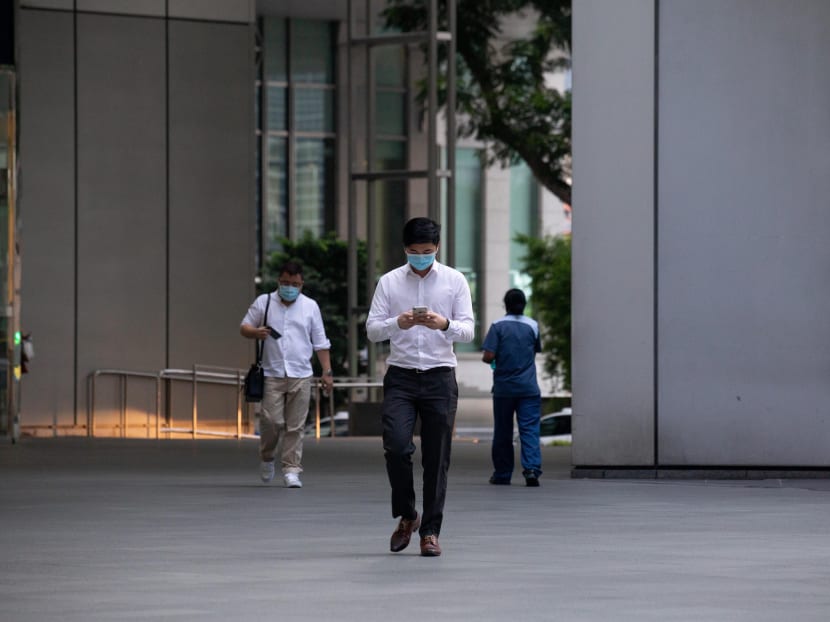Covid-19 widens wage gap in S'pore, as lower income groups suffer more severe salary cuts: DBS study
SINGAPORE — The Covid-19 pandemic has worsened wage inequality in Singapore with the lowest-income groups suffering the sharpest drops in their salaries.

A DBS study of some of its customers found that 26 per cent saw their incomes drop by at least 10 per cent in May.
- In May, 26% of DBS customers captured in a study saw their incomes decline by at least 10%
- Those earning S$2,999 and below make up 49% of this group
- Workers aged 35 to 44 are the most affected
SINGAPORE — The Covid-19 pandemic has worsened wage inequality in Singapore with the lowest-income groups suffering the sharpest drops in their salaries.
This is a finding from a DBS study released on Tuesday (Aug 18) which looked at the incomes earned by 1.2 million of its retail customers — Singapore citizens and permanent residents aged 25 to 70 — who credit their salaries into DBS accounts.
The number of people who saw their incomes decline by at least 10 per cent steadily increased from March to May.
In March, it was 15 per cent, rising to 21 per cent the following month and then 26 per cent in May.
Among those whose incomes declined by at least 10 per cent in May, 32 per cent saw their incomes dropped by more than half.
LOWEST INCOME EARNERS HARDEST HIT
Those earning S$2,999 and below formed the largest percentage of customers (49 per cent) who registered a decline in income by at least 10 per cent.
Within this group, 51 per cent saw their incomes more than halve.
In comparison, higher earners — those earning between S$7,000 and S$9,999 — were the least affected by income cuts, making up 6 per cent, while those who earn S$10,000 and more, made up just 8 per cent.
SAVING ADEQUACY
The study also looked at how much affected individuals had set aside for emergencies and found that most of those who had suffered a drop in income did not have the recommended three to six months of savings stashed away.
In May, 42 per cent of those who experienced income deterioration had less than a month of emergency funds set aside, with another 22 per cent having kept aside one to three months' worth of their salary.
The study also showed that those with lower incomes have less savings. Among those earning S$2,999 and below, 33 per cent have less than three months of emergency funds compared to 17 per cent of those in the next income bracket.
MIDDLE-AGED WORKERS MOST AFFECTED
Of the customers who experienced a more-than-10-per-cent decline their income in May, those aged 35 to 44 were the hardest hit.
They made up 28 per cent of this group while those aged 62 and above made up 8 per cent.
Mr Irvin Seah, a senior economist at DBS Group Research, said: “Older workers have a lot of policy support measures for example the wage credit scheme…(which) are essentially some form of safeguard for the older workers, but the same can’t be said for the middle age workers.”
The kind of support measures that middle aged workers enjoy is comparatively less and middle age workers also face higher competition from their younger peers and their relatively high wages also make them susceptible, he added.
SECTORS
Not surprisingly, employees in food and beverage (F&B), hospital and aviation sectors saw the highest proportion of individuals experiencing a decline in income.
In May, 81 per cent of individuals employed in the aviation sector experienced lower income, followed by 71 per cent of those employed in the hospitality sector and 50 per cent of those working in the F&B industry.
WHAT IT MEANS
Mr Seah explained that the impact of Covid-19 on the various income groups has been “disparate and uneven” but “skew unfavourably towards lower income earners”.
“The Singapore government has swiftly introduced policy measures such as the Jobs Support Scheme which helped mitigate job losses but more targeted policy intervention may be required to provide calibrated assistance to those that are worst affected,” he said.
Apart from the lower income group, Mr Seah highlighted the plight of middle age workers and he hopes for more policy measures to be introduced to support this group.











